Hip Hop and the New Slavery
By Toure Muhammad Contributing Writer | Last updated: Aug 6, 2013 - 12:29:46 PMWhat's your opinion on this article?

|
Rap stars speak on music industry shackles, and prison industrial complex: A new trend?
* FinalCall.com Full Coverage: Hip Hop: The Voice of World Youth!
* A coming of age? Hip Hop at 40 (FCN, 08-06-2013)
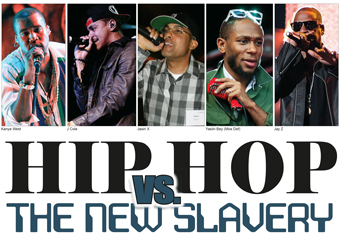
|
But well-known artists, including Kanye West and rising star J. Cole, have raised these topics in recent music. Kanye and J. Cole had CDs released on the same date, June 18, the day before the annual Juneteenth celebrations in the Black community. Could this be a new trend with more artists unafraid, fed up and/or frustrated enough to confront and analyze more complex, relevant social topics in their music?
“After years of some of the most self-hating and ignorant music our people have ever been forced to digest, this is definitely new and refreshing what J. Cole and Kanye West are saying. I hope it spreads like wildfire to other artists. We need balance back in all forms of Black music, no question,” said Kevin Powell, president and cofounder of BK Nation, a new national organization based in New York City.
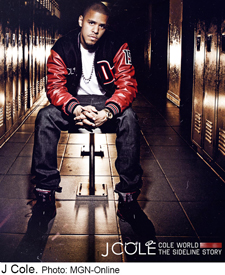
|
J. Cole’s project, “Born Sinner” has a track titled “Runaway” where he discusses how a conversation with his racist manager had him thinking about the legacy of chattel slavery in America: “Made me reflect on the time when we was 3/5s of them/chains and powerless/brave souls reduced to cowardice … ”
Then he makes the connection to today: “Rich white man rule the nation still/Only difference is we all slaves now, the chains still concealed.”
Kanye’s new release, “Yeezus” has a track titled “New Slaves” which rails against racism, capitalism and the prison industrial complex: “My momma was raised in an era when, clean water was only served to the fairer skin ... use to be only n----rs now everybody playing, spending everything on Alexander Wang … meanwhile the DEA teamed up with the CCA.
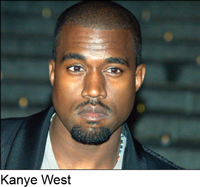
|
DEA refers to the Drug Enforcement Association and the CCA refers to the Corrections Corporation of America, which along with the GEO Group are the two biggest corporations that operate for profit prisons and detention centers in the United States.
Even in Lil Wayne’s latest project “I Am Not a Human Being Part 2,” he ruminates about if he will die today or go to jail right after these lyrics in a song titled “God Bless America:” “Yeah, my country tis of thee, Sweet land of kill ‘em all and let ‘em die, God bless America, uh, This so Godless America.”
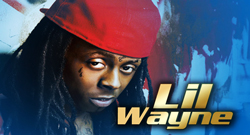
|
Initially, Richard Nixon and Ronald Reagan pushed and established the current drug war policies that caused the prison population to jump, but Bill Clinton leaned heavily to the right with “tough on crime” policies that continued the Republican policies and caused a boom in the prison population. There is no sign that trend has changed. Vice President Joe Biden, a senator during the Clinton administration, wrote the Violent Crime Control and Law Enforcement Act, which, among other things, called for $9.7 billion in increased funding for prisons and stiffer penalties for drug offenders.
One can actually go back to the Constitution itself to see the root of current policies. The 13th Amendment of the Constitution outlawed slavery except for criminals. It reads: “Neither slavery nor involuntary servitude, except as a punishment for crime whereof the party shall have been duly convicted, shall exist within the United States, or any place subject to their jurisdiction.”
So, a convicted person is legally a slave. Consequently, slavery was never fully abolished, and prisoners in America have very little to almost no rights at all.
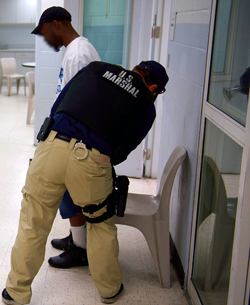
|
If you can’t find work at a major U.S. company, just go to jail, you’ll find work quickly. According to Russia Today, hundreds of American companies such as Starbucks, Nintendo, Victoria’s Secret, JC Penney, Sears, Wal-Mart, K-Mart, Eddie Bauer, Wendy’s, Proctor & Gamble, Johnson & Johnson, Fruit of the Loom, Motorola, Caterpiller, Sara Lee, Quaker Oats, Mary Kay, or Microsoft use prison labor. Lucky prisoners get minimum wage, others get pennies an hour and yet others, no pay at all.
Some prisons have commercials advertising their captive workforce that never has baby sitting or transportation problems. Prison labor is being harvested on a massive scale, according to professors Steve Fraser, editor-at-large of New Labor Forum and Joshua B. Freeman, who teaches history at Queens College and at the Graduate Center of the City University of New York and is affiliated with its Joseph S. Murphy Labor Institute.
“All told, nearly a million prisoners are now making office furniture, working in call centers, fabricating body armor, taking hotel reservations, working in slaughterhouses, or manufacturing textiles, shoes, and clothing, while getting paid somewhere between 93 cents and $4.73 per day,” the professors said.
While the recent lyrics are a good sign, activist and writer Powell doesn’t think that the next movement will come from the Hip Hop community, although it could help spread the word about it. “Movements come from people who are actually socially conscious and engaged. Cultural movements are inspired by political movements. The Black Arts Movement was inspired by the civil rights movement. So until we have another very serious political movement springing from our communities the culture is not going to change any time soon,” he said.
FinalCall.com Full Coverage: Hip Hop: The Voice of World Youth!
INSIDE STORIES AND REVIEWS
-
-
About Harriett ... and the Negro Hollywood Road Show
By Rabiah Muhammad, Guest Columnist » Full Story -
Skepticism greets Jay-Z, NFL talk of inspiring change
By Bryan 18X Crawford and Richard B. Muhammad The Final Call Newspaper @TheFinalCall » Full Story -
The painful problem of Black girls and suicide
By Charlene Muhammad -National Correspondent- » Full Story -
Exploitation of Innocence - Report: Perceptions, policies hurting Black girls
By Charlene Muhammad -National Correspondent- » Full Story -
Big Ballin: Big ideas fuel a father’s Big Baller Brand and brash business sense
By Bryan Crawford -Contributing Writer- » Full Story






 Click Here Stay Connected!
Click Here Stay Connected!








